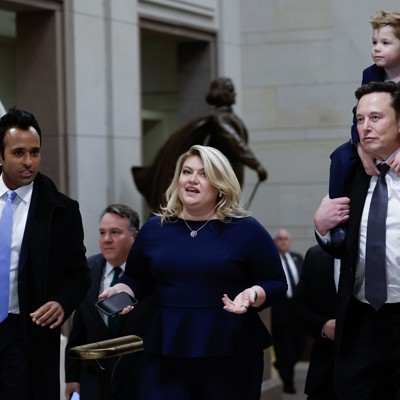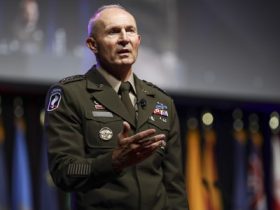Elon Musk and Vivek Ramaswamy have been tweeting up a storm about creating a Department of Government Efficiency — although to listen to some of what they are saying, such a department has already come into being through their tweets. Most accounts of this effort have emphasized their calls for eliminating “inefficient” programs or cutting “inefficient” regulation of business.
No prizes for guessing the kinds of regulations or programs they are likely to find most inefficient, as we can be certain it is ones that constrain the ability of companies to do what they want, rather than the internal procedures inside government agencies that constrain their ability to make sensible choices rather than checking boxes for rule compliance.
But there is absolutely nothing in the Musk-Ramaswamy pronouncements about making the government more efficient by causing it to work better.
Many of the anecdotes about egregious instances of inefficiency are exaggerated. Nonetheless, it is estimated by GAO that $60 billion in fraudulent payments were made during the COVID-19 pandemic, and anyone who has spent time in an agency can come up with many small examples of worthless uses of funds.
But we need to understand that an important constituency for better government performance is actually among civil servants themselves.
I know from my own experience working on organizational change in agencies from a perch in the Office of Management and Budget many years ago that there are many career civil servants—not all, but a significant group that I called at the time a “change vanguard”—who believed in and were committed to improving their agency’s performance. My approach while in government was to unleash those people to pursue the changes they sought but had previously not been empowered to undertake. Those people were the backbone for creating changes I could never have done with the small staff I had in the White House.
Back in those days, civil servants conceived and pushed important operational changes in how government worked. For example, the old system of buying food for soldiers involved developing a government specification for everything from ketchup to chocolate chip cookies and buying from the lowest bidder producing to the specification. Under a new arrangement that civil servants in the Defense Logistics Agency conceived, the government sampled a range of commercially available items and bought more or fewer depending on what soldiers ate.
Other examples of beneficial changes include the switch from buying individual shrink-wrapped software to paying for site licenses (although it took a decade to adopt this practice) and the use of online auctions to buy products.
These changes didn’t come out of the White House, or from some version of a Musk-Ramaswamy “Department of Government Efficiency.” They came from career civil servants working in many agencies who had ideas people in the White House could never have thought of themselves.
Musk and Ramaswamy are in a similar situation. They can’t bring about performance improvements in government by themselves; they need to work with those inside the agencies seeking a more efficient government.
Unfortunately, this is unlikely to happen, both because Musk and Ramaswamy are committed to demonizing and diminishing the federal workforce and because performance improvement is not really part of their agenda.
This is a missed opportunity. If these two really wanted to make a difference rather than making ideology, they would talk about improving performance and not just slashing agencies, and they would seek to engage allies from our career civil servants. That is more likely to accomplish something than what they are doing instead.
Steve Kelman is professor of public management at Harvard University’s Kennedy School of Government and former administrator of the Office of Federal Procurement Policy.
Read the full article here








Leave a Reply